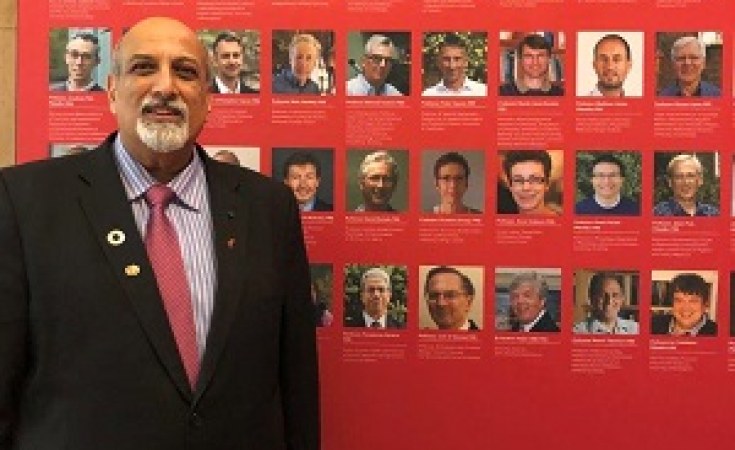Johannesburg — Professor Salim Abdool Karim, South Africa's leading Aids researcher and scientist has been elected as a fellow of the prestigious Royal Society in London.
Established in 1660, it is the world's oldest science academy that includes many of the world's leading scientists over the past four centuries. Karim's name will now be written in the history books alongside world-renowned scientists such as Sirs Isaac Newton, Charles Darwin and Albert Einstein to mention a few, according to the South African Medical Council.
The Royal Society is a "self-governing fellowship made up of the most eminent scientists, engineers and technologists from the UK and the Commonwealth". Fellows and foreign members are elected for life through a peer review process on the basis of "excellence in science". There are about 1,600 fellows and foreign members, including around 80 Nobel laureates. Each year up to 52 fellows and 10 foreign members are elected from a group of around 700 candidates.
Karim joins about 40 leading scientists globally who were inducted as fellows at a ceremony in London. He is the director of the Centre for the Aids Programme of Research in South Africa (Caprisa), and Caprisa professor of global health at the Maliman School of Public Health at Columbia University in New York.
Karim told the Mail and Guardian he hopes that being inducted as a Royal Society fellow will send a message that South African science is world-class, and "that we can walk shoulder to shoulder with the giants in science anywhere in the world".
Karim is the sixth South African to become a Royal Society fellow. Others include Dr Bernie Fanaroff of the Square Kilometre Array and mathematician Professor George Ellis, according to the M&G.
Karim is also an elected member of the US National Academy of Medicine and the American Academy of Microbiology. His many awards include the African Union's Kwame Nkrumah Continental Scientific Award. In October 2017, he, with his wife Prof Quarraisha Abdool Karim - an NRF A-rated scientist and infectious disease epidemiologist - were awarded the esteemed Institute for Human Virology Lifetime Achievement Award for exceptional public service for their contribution to the global Aids response, according to the South African Medical Council.


